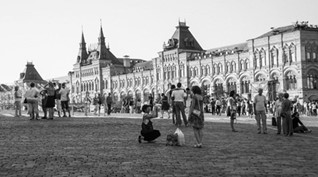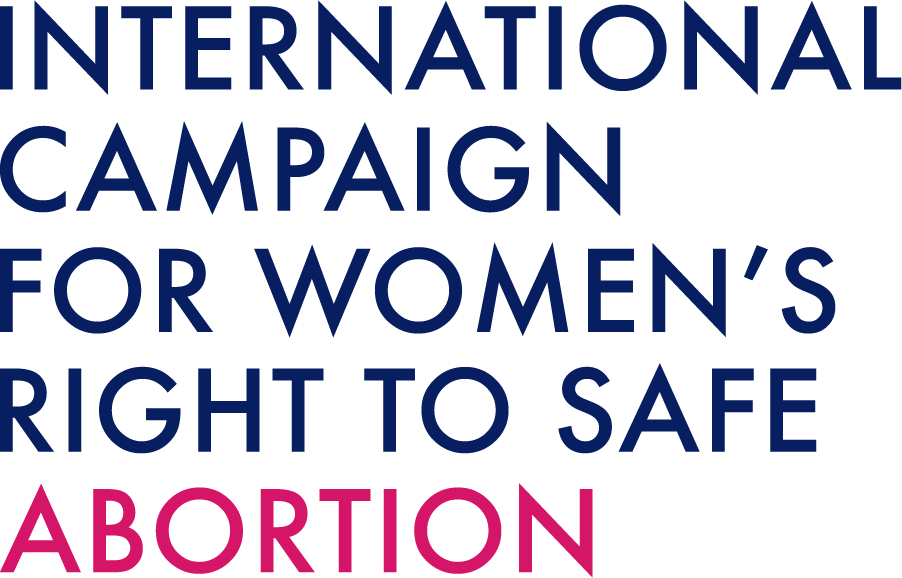
Russian Federation. Abortion rates are down by almost 90% and continue to fall, say researchers… but…
 |
| Red Square, Moscow |
Abortion rates in the Russian Federation have fallen by almost 90 percent since the end of Soviet times, as other means of contraception have become widely available, according to new research by Viktoriya Sakevich of the Higher School of Economics and Boris Denisov of Moscow State University.
There are two exceptions to this trend, according to the two demographers, who have focused on abortion for many years: Moscow where the large number of migrant workers has pushed the number of abortions up in recent times, and Tyva, which has not yet passed through the birth control revolution that has taken place elsewhere.
As the number of migrant workers in Moscow declines or at least as efforts to stop those who are allowed to come from bringing their families with them, and as Tyva undergoes the kind of demographic evolution that access to other prophylactic measures make more common, these anomalies will decline and eventually disappear.
But instead of taking such findings seriously and relying on anecdotes largely related to Moscow, Anatoly Nesmiyan, who blogs under the screen name El Murid, says the Kremlin has decided to move toward restricting access to or even banning abortions altogether. (t.me/anatoly_nesmiyan/21079 reposted at kasparov.ru/material.php?id=670F57404D248).
This pattern, El Murid suggests, is typical of the Kremlin’s approach when it comes to demographic questions. It is failing to pay attention to what is really going on and why, and it is regularly fighting the wrong battles as a result, often devoting its attention and energies to battles that Russia has already won or can’t possibly hope to win by the means the Kremlin has chosen.
Even so, the Russian government has been actively seeking to reduce the number of abortions in Russia as it faces what it sees as increasing demographic problems. Despite the constitutional right to abortion and the decline of surgical abortions, given improved birth control methods, Moscow has banned pro-choice propaganda and is supporting regional governments’ anti-abortion laws. (Window on Eurasia, October 18, December 21, 2024; Garant.ru; ConsultantPlus, accessed March 12).
Moscow has not instilled a country-wide abortion ban, a move that would spark criticism in politically-sensitive and sizable population centres such as Moscow and St. Petersburg. Instead of a ban, the government has supported actions by federal subjects to restrict access to abortions, ensuring a difficult process that varies across the regions.
This array of regulations has caused abortions to be difficult to access in some regions and easier in others. This in turn has led to the emergence and growth of abortion “tourism” as women travel from abortion-restricted regions to others, or even abroad, where it is easier to access it (Novaya Gazeta Europe, February 7; Veter, March 6). Using this approach, the Kremlin seeks to retain power while shifting responsibility for the regional restrictions onto individual regions, much as it did during the Covid-19 pandemic (see EDM, April 27, 2020). Such an approach, however, may backfire by lessening Moscow’s authority and demonstrating to citizens that laws can be bypassed.
In December 2023, a private clinic abortion prohibition bill was proposed to the State Duma, but the Parliamentary Committee on Health did not support it. Many private clinics, however, have refused to perform abortions, forcing women to turn to government clinics with long wait-times and where staff reportedly pressure women to continue their pregnancies. Although these clinics were said to have voluntarily refused to provide services, it is suspected that it was done under pressure from the authorities (Radio Svoboda, March 9, 2024).
The proposal of a full abortion ban in Vologda Oblast, about 400 miles east of St Petersburg, has attracted particular attention. Georgy Filimonov, governor of Vologda Oblast, is pushing for a regional law that would ban all abortions, excluding cases of medical complications or rape (Novaya Gazeta Europe, February 7). This display of loyalty to the Kremlin, rather than to the Russian constitution and Russian law, is sending a chill through the region. Even if such a law is adopted, which is improbable given its unpopularity, it is unlikely to survive any subsequent court challenges.
Irina Faynman, an abortion rights activist, founder of the Foundation for Emergency Contraception, and author of the Telegram channel “Whispers of the Blood”, is certain no such law will ever pass at the federal level because it would be so unpopular (Russian Feminist Association “SHE”, July 22, 2023; T.me/shorokhi_krovi, accessed March 12). Faynman argues that Moscow is attempting to achieve the same ends by forcing the regions one by one to introduce such measures (Novaya Gazeta Europe, March 7). Unsurprisingly, under these circumstances, other regional heads seek to continue the approach the Putin regime has long maintained and are looking to adopt regulations in a move to shift the responsibility to hospitals, doctors, and municipalities (Mel, March 8).
According to Faynman, some women who are being refused requests for abortions at clinics in Vologda Oblast are now travelling to neighboring Yaroslavl Oblast where there are no such restrictions. At present, this is the easiest option as they can travel there by local train or bus for relatively little money. The total number of women doing so is unknown, she acknowledges, but the hospitals in Yaroslavl are now reporting overcrowding in their OB-GYN departments. They may soon need to turn women away, not because their region has banned abortion but because there simply are not enough doctors and nurses to accommodate the number of procedures (Novaya Gazeta Europe, March 7). Due to Russian President Vladimir Putin’s healthcare optimization project, which has cut the number of hospitals and doctors throughout Russia over the last decade, this will become a growing problem (Novyye Izvestiya, May 19, 2024; Novaya Gazeta Kazakhstan, September 16, 2024).
The phenomenon of Russian women traveling for abortions has grown to the point that Russians refer to it as “abortion tourism”, Faynman says (Novaya Gazeta Europe, March 7). This term is not unique to Russia and has been used in other places for some time. The term gained popularity in 2023 as more and more women travelled from region to region for abortions. Faynman states that the routes that have attracted the most attention are those from Karelia, Kursk, and Kaliningrad to Moscow and St. Petersburg. While most Russian abortion tourism remains within the borders of the country, Faynman says, an increasing number of women are travelling to Kazakhstan and Kyrgyzstan for medical abortion procedures. Those countries provide good services in this regard and are not expensive for Russian women (Novaya Gazeta Europe, March 7).
Faynman adds that she and other activists are currently forming groups to educate women on their rights and how to access abortions when needed (Novaya Gazeta Europe, March 7). The Russian government, however, may counter this by charging them with promoting abortion, something now illegal country-wide, or otherwise seek to suppress their activities (Verstka, March 10). In this situation, she says Russian women should not continue to count on being able to access the morning-after pill, as many have in recent years, but rather should instead practice safe sex to avoid being at the mercy of Kremlin policies (Novyye Izvestiya, November 28, 2024; Novaya Gazeta Europe, March 7). Abortion tourism is only one of the ways in which Moscow’s efforts to restrict or even ban abortions are backfiring. Russian sociologists claim that such moves will do little to nothing to boost the birthrate (Window on Eurasia, February 16). More seriously, however, many Russian women will turn to illegal abortion providers at great risk to their health and lives (Yesli Byt’ Tochnym, July 28, 2023).
Consequently, while banning abortions in certain regions may please Russian conservatives, this move may end by undermining Putin’s hold on power, surely not the result he or Russia’s conservatives want (Window on Eurasia, August 7, 2023).
This article was published at The Jamestown Foundation’s Eurasia Daily Monitor Volume: 22 Issue.
ADDITIONAL SOURCES: Paul Goble, Window on Eurasia 2. 18 October 2024. Abortion rates, down by almost 90 percent since the end of Soviet times, continue to fall across Russia except in Tyva and Moscow, Sakevich and Denisov say.
+ Eurasia Times. https://windowoneurasia2.blogspot.com/2024/10/far-fewer-russian-women-childless-than.html, 28 October 2024.




















